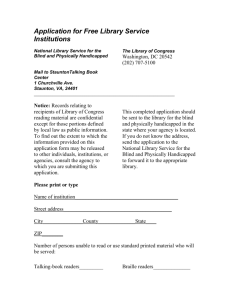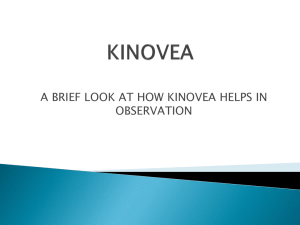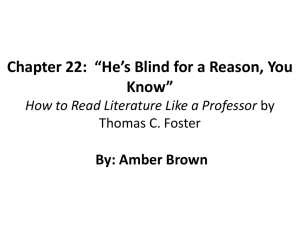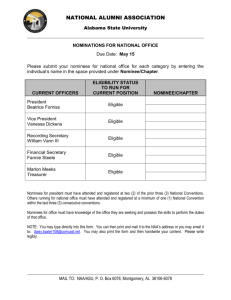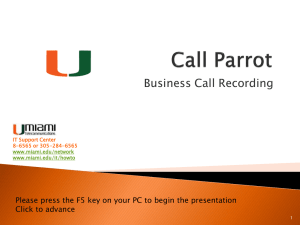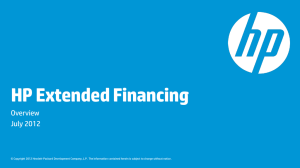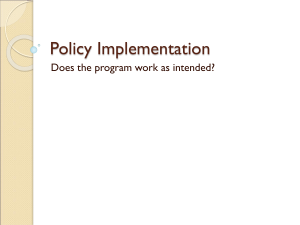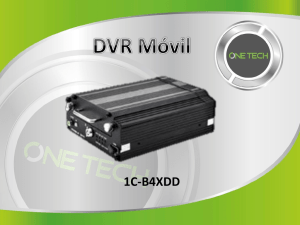application if you are an institution or organization
advertisement
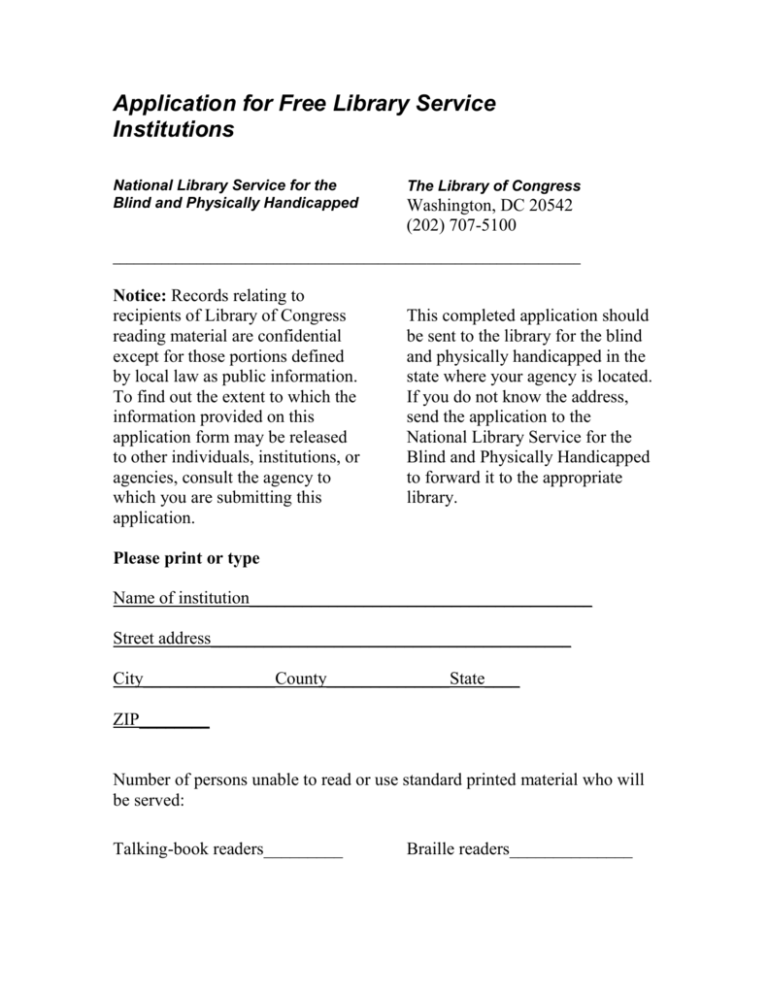
Application for Free Library Service Institutions National Library Service for the Blind and Physically Handicapped The Library of Congress Washington, DC 20542 (202) 707-5100 ___________________________________________________________________ Notice: Records relating to recipients of Library of Congress reading material are confidential except for those portions defined by local law as public information. To find out the extent to which the information provided on this application form may be released to other individuals, institutions, or agencies, consult the agency to which you are submitting this application. This completed application should be sent to the library for the blind and physically handicapped in the state where your agency is located. If you do not know the address, send the application to the National Library Service for the Blind and Physically Handicapped to forward it to the appropriate library. Please print or type Name of institution_______________________________________ Street address_________________________________________ City_______________County______________State____ ZIP________ Number of persons unable to read or use standard printed material who will be served: Talking-book readers_________ Braille readers______________ Books, magazines, and equipment_ You may borrow any of the following items. Check those you wish to receive and indicate the quantity needed. For ease of use, the library recommends the digital player for audiobooks. (Consult the enclosed Facts: Playback Machines and Accessories Provided on Free Loan to Eligible Individuals and Institutions for a full description of machines and accessories.) Quantity Books recorded digitally with standard digital player ____________ Cassette player for cassette magazines subscription ____________ Books recorded on audio cassettes with cassette player ____________ Magazines recorded on cassettes ____________ Large print books ____________ Braille books ____________ Braille magazines ____________ Accessories for Cassettes Headphones—solely for use where speakers are not permitted. Amplifier—solely for use by readers with profound hearing loss. Ask for separate application. Remote control unit. Ask for a separate application. Breath switch. Extension levers. Pillow speaker —solely for readers confined to bed. Return of equipment Playback equipment and special accessories are supplied to eligible institutions on extended loan. If this equipment is not being used in conjunction with recorded reading material provided by the Library of Congress and its cooperating libraries, it must be returned to the issuing agency. To be completed by certifying authority (See below, Section B, for definitions.) I certify that the institution named serves patrons who are unable to read or use standard printed material because of blindness, visual disabilities, or physical limitation. I further certify that the reading materials and equipment borrowed will be used by such persons only. Please print or type Name of administrator___________________________________________________ Street Address__________________________________Telephone ( )____________ City___________________________State___________________ZIP_____________ Staff member who will be responsible for this service (person to be contacted by the library): (Name) (Title)__________________________ Eligible applicants Nursing homes, hospitals, and schools for the blind or physically handicapped may borrow equipment and reading materials for use by eligible patrons in either a group setting or for individual use. The institution is responsible for keeping a record of the serial numbers of all machines assigned to the institution. Eligible residents, not the institution, are responsible for equipment borrowed directly using individual applications (Form 73-101). Public or private schools where handicapped students are enrolled are encouraged to submit individual applications (Form 73-101) but may use this form (73-101a) accompanied by certification of eligibility for each applicant. For music materials, i.e., scores, instructional recordings, music magazines, individual applications (Form 73-101) must be submitted. In the case of reading disability from organic dysfunction, certification must be made by a doctor of medicine or doctor of osteopathy who may consult with colleagues in associated disciplines. Eligibility of blind and other physically handicapped persons for loan of library materials________________________________________________________________ A. The following persons are eligible for loan service: 1. Blind persons whose visual acuity, as determined by competent authority, is 20/200 or less in the better eye with correcting lenses, or whose widest diameter of visual field subtends an angular distance no greater than 20 degrees. 2. Other physically handicapped persons as follows: (a) Persons whose visual disability, with correction and regardless of optical measurement, is certified by competent authority as preventing the reading of standard printed material. (b) Persons certified by competent authority as unable to read or unable to use standard printed material as a result of physical limitations. (c) Persons certified by competent authority as having a reading disability resulting from organic dysfunction and of sufficient severity to prevent their reading standard printed material in a normal manner. B. In cases of blindness, visual disability, or physical limitation, the administrator of the institution can serve as the certifying authority. C. In the case of reading disability from organic dysfunction, competent authority is defined as doctors of medicine and doctors of osteopathy who may consult with colleagues in associated disciplines. D. Eligible readers must be residents of the United States, including the several states, territories, insular possessions, and the District of Columbia, or American citizens domiciled abroad. Lending of materials and classes of borrowers___________________________________ Veterans. In the lending of books, recordings, playback equipment, musical scores, instructional texts, and other specialized materials, preference shall be given at all times to the needs of the blind and other physically handicapped persons who have been honorably discharged from the armed forces of the United States. Institutions. The reading materials and playback equipment for the use of blind and physically handicapped persons may be loaned to individuals who qualify, to institutions such as nursing homes and hospitals, and to schools for the blind or physically handicapped for the use of such persons only. The reading materials and playback equipment may also be used in public or private schools where handicapped students are enrolled; however, the students in public or private schools must be certified as eligible on an individual basis and must be the direct and only recipients of the materials and equipment. NLS Network Library Manual 3. Laws 3.3 Eligibility and Certification for Institutions Eligibility Criteria for Institutions. Hospitals, nursing homes, and schools for the blind or physically handicapped and similar institutions having eligible individuals among their regular clientele are eligible for service in the name of their institution. The institution may apply for, and have assigned to it, reading material, equipment, and accessories for the use of eligible readers. The NLS standard application for for institutions may be used for these. A supply of these is available from multistate centers. Nursing homes, hospitals, and schools for the blind or physically handicapped may retain the certification forms for individual applicants. Public and Private Schools. Public and private schools that serve a general student body (in contrast to a school having only visually or physically handicapped students) must establish eligibility for applicants on an individual basis. Schools in this category must submit individual applications forms to the lending agency, or they may use the application form for institutions accompanied by a separate certification of eligibility for each applicant . The individual students who qualify must be the direct and only recipients of the materials and equipment. Library materials may be sent to each certified student in care of the school or classroom teacher; or, the classroom may be registered with the network library and materials sent at the request of the teacher, provided each student using the service has been certified and certification is on file in the network library that is providing service . Service to public and private schools or their individual classrooms must be renewed annually, with an updated list of students and their certification submitted to the lending agency. Certification by Competent Authority. Program regulations require certification by a competent authority. In cases of blindness, visual handicap, physical handicap, or deaf blindness, competent authorities may be professionals in a number of related fields (other than a member of the applicant's family) who are familiar with the applicants' visual or physical conditions and are able to certify that the applicants are unable to read or use standard printed material because of the condition. Examples of competent authorities are given 36 CFR 701.10(b)(2)(i) and on the NLS application. In the case of reading disability resulting from organic dysfunction, competent authority is defined as doctors of medicine or doctors of osteopathy who may consult with colleagues in associated disciplines (36 CFR 701.10(b)(2)(ii)). Network Division Office Last updated 11 2003 Library Service to Institutions NLS Factsheets Library Service to Institutions August 1995 Definition Talking-book service is made available by regional and subregional libraries to institutions and agencies whose clientele might be expected to include blind or physically handicapped persons eligible for materials from the National Library Service for the Blind and Physically Handicapped (NLS). Such institutions and agencies include hospitals, retirement homes, nursing homes, and rehabilitation centers. Responsibility The institution must assign a specific staff member to be responsible for equipment, talking books, and any accessories provided by the network library to an institution. These items are federal property, and institutions are held accountable for their location and condition. Procedures Initial Contact A request for talking-book service can come from an institution on behalf of its clientele, or can be part of a network library's outreach initiative to eligible institutions in its service area. A personal visit by a network library staff member will provide information about the talking-book service, acquaint the institution with policy and procedures for service, and introduce appropriate institution staff to playback equipment operation and cassette book use. If a personal visit is not feasible, telephone and correspondence contacts will be made. Enrollment The director or designee of the institution must complete an NLS institutional application form and return it to the network library. If there are eligible persons in the institution who would benefit from being registered for individual service--primarily those who are avid readers or who would find it difficult to enjoy talking books in a group setting--these persons should complete individual application forms and return them to the network library. On acceptance and approval of the application, the institution will be placed on a mailing list for catalogs and other NLS publications that announce available titles. Most network libraries will assign a specific staff person to serve as the institution's primary contact for service and information. Equipment The number of talking-book machines assigned to an institution depends upon the number of eligible users to be served and the setting in which the machines will be used. A group may require one cassette machine while some individual users could share another machine. One machine for an average of six users is standard. Accessories such as headphones, pillow speakers, and remote control units, are available, but only where need is demonstrated. Frequency of Contact The institution's staff member responsible for book and equipment supervision must maintain contact with the network library, giving updates on changing needs, conditions, and personnel. The library staff member assigned to the institution will also maintain contact at least quarterly by telephone or personal visit. As there is frequent turnover among agency personnel who supervise this program at institutions, it is important that both institution and network library make every effort to stay in touch. Written Policy The network library should develop a written policy statement that details both parties' responsibilities and procedures for continued service. The library should provide this policy to institutions applying for service. NLS Factsheets Playback Machines and Accessories Provided on Free Loan to Eligible Individuals and Institutions January 2009 Background Recorded materials loaned free by the National Library Service for the Blind and Physically Handicapped (NLS), Library of Congress, are available on digital talking-book cartridges and audiocassettes. Both digital and cassette recordings require specially designed playback equipment (see Part I, below), which is loaned free to eligible individuals and institutions. Special accessories (see Part II, below) are also loaned free. Digital talking-book players play digital cartridges and cassette machines play audiocassettes at either 15/16 or the commercial standard 1-7/8 inches per second (ips). Only headphones and amplified headphones with miniplugs will work with the digital player. To obtain any of the equipment and accessories described in Part III, below, individuals and institutions must be registered with the Library of Congress talking-book program. An application for the free library service may be requested from the Reference Section, National Library Service for the Blind and Physically Handicapped, Library of Congress, Washington, DC 20542, or downloaded from the NLS web site, www.loc.gov/nls. All equipment and accessories are provided by the cooperating regional library serving eligible readers in their state of residence for as long as the reader is actively involved in the program. Part I. Available Playback Machines Digital Standard Player plays NLS (ANSI/NISO Z39.86:2002) digital talking books plays Daisy 2.02 digital talking books plays AMR-WB+, MP3, and WAV audiofiles has eight controls includes a variable speed control that permits speeding up or slowing down playback speed without changing the pitch is portable is equipped with a rechargeable battery and an electrical cord includes built-in audio instructions for using the digital machine Digital Advanced Player plays NLS (ANSI/NISO Z39.86:2002) digital talking books plays Daisy 2.02 digital talking books plays AMR-WB+, MP3, and WAV audiofiles has thirteen controls, including a row of controls for setting and retrieving bookmarks and navigating through the structured levels of a book includes a variable speed control that permits speeding up or slowing down playback speed without changing the pitch is portable is equipped with a rechargeable battery and an electrical cord includes built-in audio instructions for using the digital player Cassette Machine plays 2-track and 4-track audiocassettes at 15/16 ips and 1-7/8 ips has ten controls includes a variable speed control that permits speeding up or slowing down playback speed is portable is equipped with a rechargeable battery and an electrical cord includes separate instructions for using the cassette machine: instructions for using the cassette machine Part II. Special Accessories for Digital Talking-Book Players Amplifier is for individuals with a significant hearing loss requires a separate application with medical certification; the sound is boosted to a level that can cause permanent hearing loss to persons with normal hearing. Please contact your cooperating library about the application procedure for obtaining this accessory. Headphones are issued only to readers who require them for reading talking books where speakers are not permitted, as in nursing homes and hospitals Pillow Speaker is for individuals who are confined to a bed may be used with any playback machine is placed under the reader's pillow and is normally heard only by the reader Part III. Special Accessories for Playback Machines Amplifier is for individuals with a significant hearing loss requires a separate application with medical certification; the sound is boosted to a level that can cause permanent hearing loss to persons with normal hearing. Please contact your cooperating library about the application procedure for obtaining this accessory. Breath Switch is for individuals with little or no use of their extremities must be used with remote control unit Extension Levers are for individuals who have difficulty manipulating the key controls on a cassette machine attach to the key controls of the cassette machine Headphones are issued only to readers who require them for reading talking books where are not permitted, as in nursing homes and hospitals Pillow Speaker is for individuals who are confined to a bed may be used with any playback machine is placed under the reader's pillow and is normally heard by only the reader Remote Control Unit is for individuals confined to a bed or with difficulty with mobility turns playback equipment on and off but will not control other functions such as volume and speed fits cassette playback equipment as described in Part I requires a separate application. Please contact your cooperating library about the application procedure for obtaining this accessory. Solar Panel Battery Charger is for readers who do not have access to electricity. Please contact your cooperating library about the procedure for obtaining this accessory. Back to top
